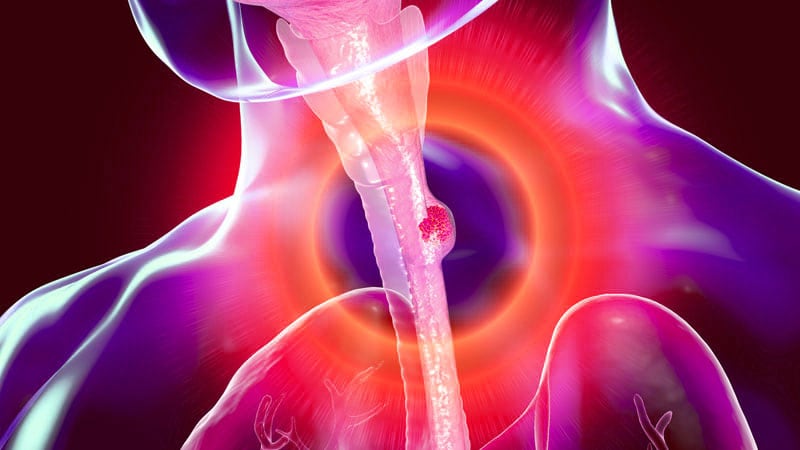The study covered in this summary was published on medrxiv.org as a preprint and has not yet been peer reviewed.
Key Takeaway
-
Unhealthy sleep behaviors are associated with a significantly increased risk for esophageal cancer, primarily adenocarcinoma, and independent of genetic risk factors.
Why This Matters
-
Unhealthy sleep behaviors may contribute to esophageal adenocarcinoma etiology.
-
Sleep behaviors are modifiable and can be altered to reduce the risk for esophageal cancer.
Study Design
-
The team enrolled 410,428 UK Biobank participants 37 to 73 years old from 2006 to 2010 and followed them for incident esophageal cancer until 2016.
-
Sleep behaviors, as reported on subject surveys, were correlated with cancer risk.
Key Results
-
Esophageal cancer was diagnosed in 410 participants; 294 cases were adenocarcinomas.
-
Evening chronotype (ie, being a “night person”), sleeping less than 6 hours or more than 9 hours a day, and napping or feeling sleepy during the day were significantly associated with increased esophageal cancer risk in age-adjusted models and after multivariable adjustment.
-
Participants with one high-risk behavior had a 41% increased risk for esophageal cancer, particularly esophageal adenocarcinoma, while those with two or more had a 79% higher risk (P < .001). This risk was independent of genetic factors.
-
The findings held after stratifying participants by body mass index, excluding people with a history of gastroesophageal reflux, and excluding esophageal cancer cases within 2 years of enrollment.
Limitations
-
Sleep behaviors were self-reported.
-
Participants were mostly of European descent.
-
The biological mechanisms linking unhealthy sleep behaviors to esophageal cancer remain unclear.
Disclosures
-
The work was funded by the National Institutes of Health and the Siteman Investment Program.
-
The investigators had no disclosures.
This is a summary of a preprint research study, “Association of Sleep Behaviors with Risk of Esophageal Cancer,” led by Xiaoyan Wang of Washington University, St. Louis. The study has not been peer reviewed. The full text can be found at medrxiv.org.
M. Alexander Otto is a physician assistant with a master’s degree in medical science, and an award-winning medical journalist who has worked for several major news outlets before joining Medscape. He is an MIT Knight Science Journalism fellow. Email: aotto@mdedge.com
For more news, follow Medscape on Facebook, Twitter, Instagram, and YouTube.

